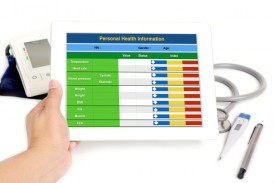Mass Incorrectly Paid $3.3M in EHR Incentive Payments

The Government Accountability Office identified Improper incentive payments as the primary risk to EHR incentive programs.
- According to a new report from the Department of Health and Human Services (HHSs) Office of Inspector General (OIG), the state of Massachusetts made incorrect Medicaid Electronic Health Records (EHRs) Incentive payments to hospitals. In total, Massachusetts made incorrect payments to 19 hospitals totaling $3.3 million. This includes overpayments and underpayments, for a net overpayment of $2.1 million.

This study was conducted because EHRs have been growing in popularity as more regulations and incentive programs are created that reward those using EHR systems. The Congressional Budget Office estimates that between 2011 and 2019, spending on Medicare and Medicaid EHR incentive programs will cost more than $30 billion and the Medicaid EHR incentive program will account for more than a third of that amount or an estimated $12.4 billion.
The U.S. Government Accountability Office has identified improper incentive payments as the primary risk to the EHR incentive programs. New and complex requirements of the programs increases the risk of potentially improper payments. The obstacles to proper implementation leave the programs vulnerable to paying incentive payments to providers that do not fully meet requirements.
To receive an incentive payment under the HITECH Act, eligible hospitals attest that they meet program requirement by self-reporting data using CMS’s National Level Repository (NLR). The NLR is a provider registration and verification system that contains information on providers participating in the Medicaid and Medicare EHR incentive programs.
The review was conducted between between January 1, 2011 and December 31, 2012. During this time period, the State agency paid $64,353,541 to eligible hospitals for Medicaid EHR incentive payments. The OIG reconciled hospital incentive payments reported on the State’s Form CMS-64, Quarterly Medicaid Assistance Expenditures for the Medical Assistance Program with the NLR and selected for further review 25 hospitals with the largest incentive payment amounts.
It was discovered that the state agency did not always pay EHR incentive payments in accordance with Federal and State requirements. The State agency did not always pay EHR incentive payments to eligible hospitals in accordance with Federal and State requirements. specifically, the State made incorrect incentive payments to 19 hospitals for a net overpayment of $2,131,192 and did not report two hospitals incentive payments to the NLR. This happened because the State agency instructions on the hospital incentive payment calculations lacked needed information, and the State agency did not reconcile the CMS-64.
OIG recommends that the State agency sound refund the $2,131,192 in net overpayments; adjust the 19 hospitals’ remaining incentive payments to account for the incorrect calculations, which will result in future cost savings of $1,715,362; review the calculations for the hospitals that were not included in the sample size; modify the hospital calculation worksheet to state that inpatient nonacute-care services should be excluded from the incentive payment calculation; and work with CMS to ensure the two hospital incentive payments not posted to the NLR.
The State agency had a mixed reaction to the report. It agreed that it made incorrect payments but disagrees with the amount reported and that it did not always report incentive payments to the NLR. While the OIG did tweak its findings slightly, the core of its recommendations still stand.
